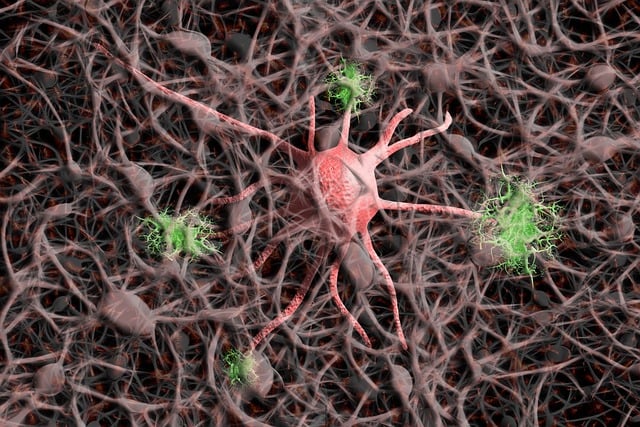MEG3 activates necroptosis in human neuron xenografts modeling Alzheimer’s disease
Alzheimer's disease remains an enigma for the scientific community, but a recent study published in the prestigious journal Science is shedding new light on the underlying mechanisms behind this devastating disease.
This study is the continuation of research previously published in 2017 by the same group of researchers, and addresses the crucial question of how neurons die in this disease.
To address this question, an international groups of researchers with the participation of Dr. Amaia Arranz Mendiguren, Ikerbasque researcher at the ACHUCARRO performed transplants of human and mouse neurons in the brain of a mouse model of Alzheimer’s disease. The results were surprising: only human neurons showed markers of the disease, such as Tau phosphorylation, neurofibrillary tangles and, most importantly, cell death. Additionally, they found that human neurons in this model showed strong expression of MEG3, a long non-coding RNA that is also found at elevated levels in Alzheimer’s patients. This high expression of MEG3 appears to be related to cell death in these human neurons. More specifically, MEG3 appears to induce a type of cell death called “necroptosis” in these human neurons, leading to the loss of these cells.


The identification of MEG3 and its role in human neuron necroptosis provides a deeper understanding of the mechanisms underlying Alzheimer’s disease and makes MEG3 an important target for future research and therapies aimed at preventing neuron death in patients with Alzheimer’s disease. This is a finding of great importance, since neuronal death is a main characteristic of Alzheimer’s disease, leading to cognitive deficits and dementia in patients.
Understanding in depth the mechanisms that underlie this neuronal death is essential to search for effective treatments and therapeutic targets and given that there are currently no drugs that effectively cure or alleviate the symptoms of the disease, these findings open the door to the possibility of developing therapies that prevent the loss of neuronal cells, which could delay or even prevent the progression of the disease.
In the words of researcher Amaia Arranz: “Our findings are promising and open new perspectives in Alzheimer’s disease research. By identifying a specific neuronal death mechanism in human neurons and proposing a possible treatment, we are taking an important step towards the search for effective therapies for this disease.”
More information:
- MEG3 activates necroptosis in human neuron xenografts modelling Alzheimer’s disease. Science, 2023.
